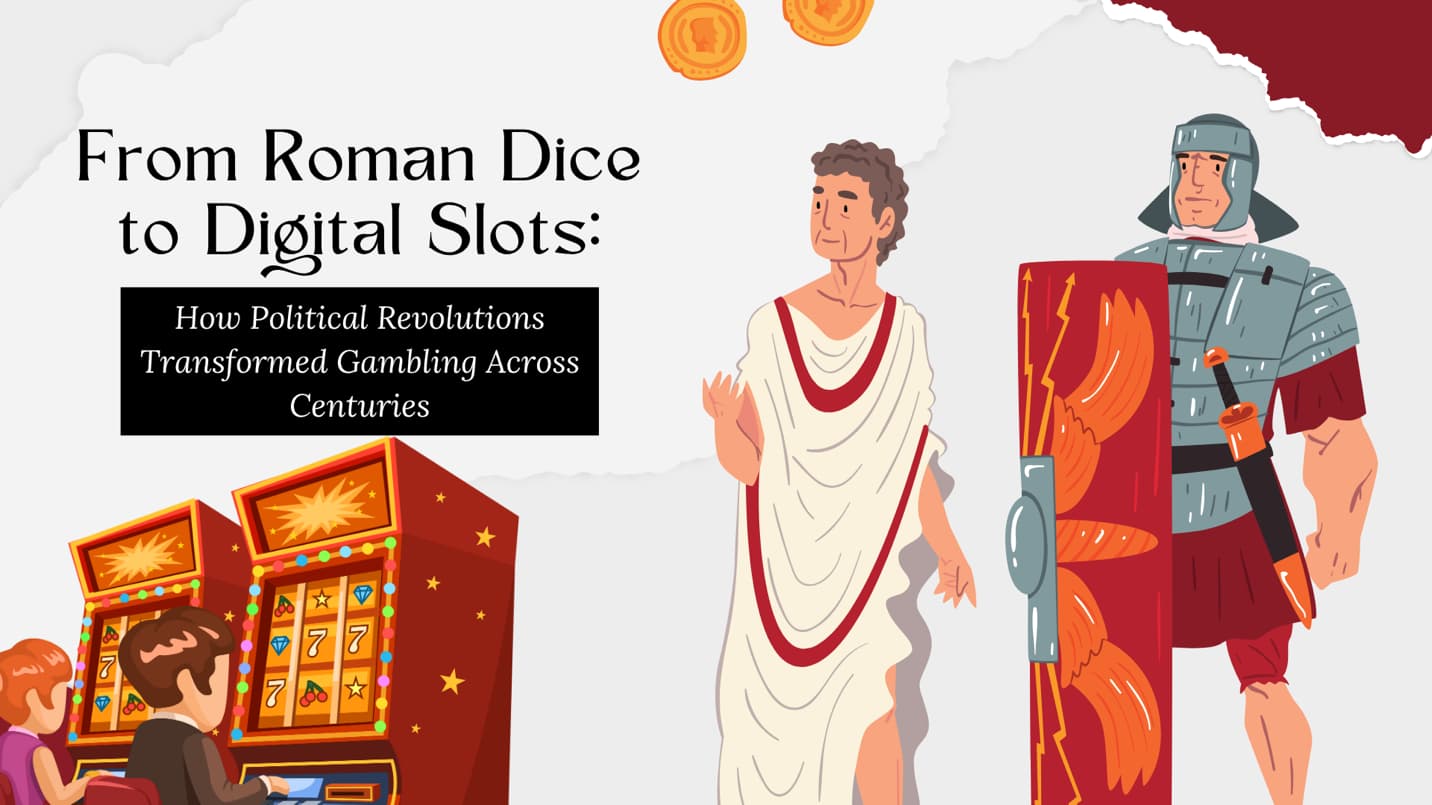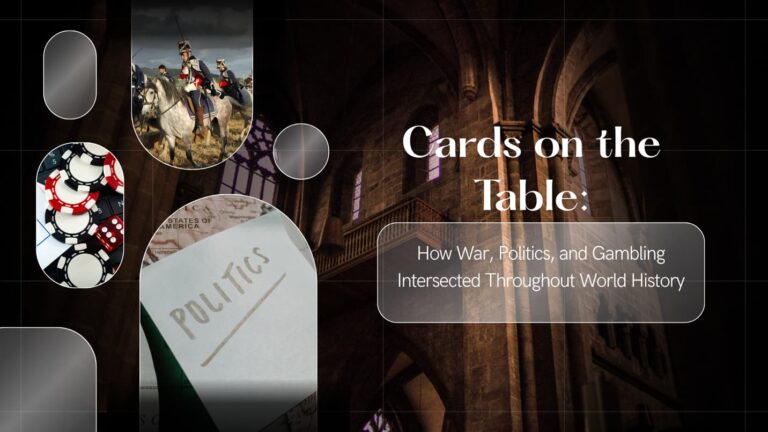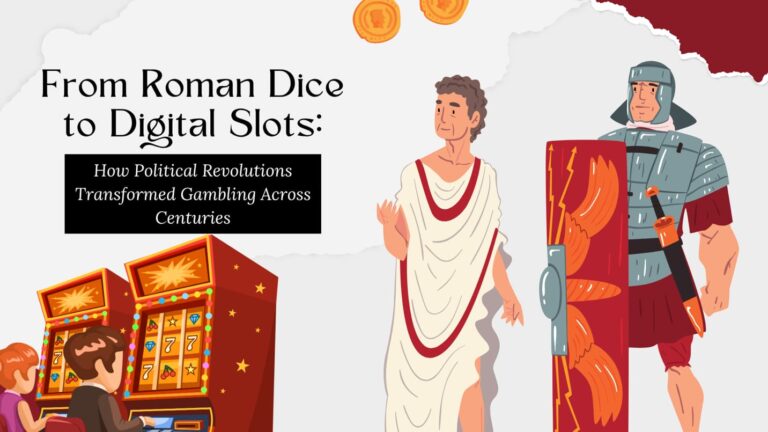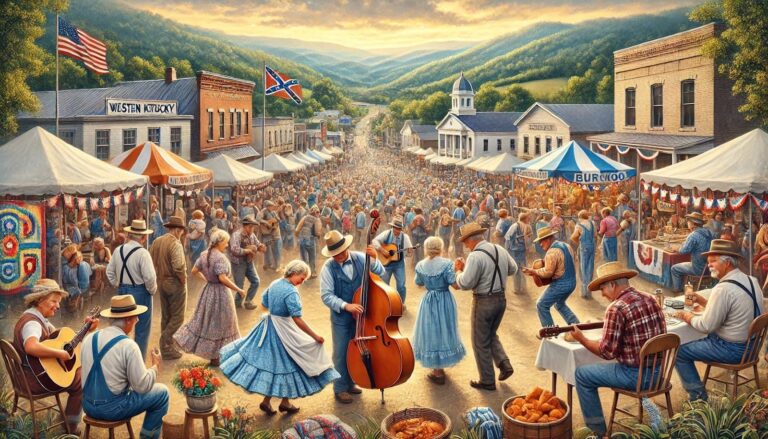Imagine a Roman soldier playing dice in a dusty camp, then say a few words forward to a person playing digital slots on his/her smartphone on his/her way to work in the morning. The scenes are two thousand years apart but these two things are not mere coincidences. The history of the world is full of political revolutions turning gambling into prohibited vice to controlled leisure, secretive operation to the world of billions.
Each of the great political changes has reshaped the laws of gambling, along with the general changes in the distribution of power, morals, and economy. Today’s players can sign in to an online casino like Cryptorino casino, complete registration at Crypto Rino casino, and play Crypto Rino within seconds—a convenience unimaginable to those Roman soldiers. This trend can be interpreted to show the way in which gambling is also a reflection of the most profound values and contradictions of the society.
Ancient Foundations: When Empires Gambled
Roman Games of Chance
Gambling was adopted with great eagerness in the Roman Empire. Soldiers spent time in between campaigns rolling knucklebones as well as dice whereas citizens were betting on chariot racing with religious passion. Even the emperors were not left behind and Augustus is reported to have lost massive amounts of money at the gambling table.
But this acceptance was mixed up. According to Roman law, gambling was strictly forbidden except in the times of Saturnalia, but this was not strictly observed. This paradox was also a symbol of the paradoxical character of gambling as both a social lubricant and a possible source of disorder.
The Fall and Medieval Suppression
The emergence of Christianity essentially changed the social status of gambling. The Church denounced gambling as a temptation that was a sin and linked to greed and immorality. Aiming at obtaining Church favor, political leaders prohibited in European regions in large scale.
This repression pushed gambling to the underground. The existence of secret gaming houses was in the shadows forming an illegal culture that would continue to live across several historical periods. The prohibition breeding pattern markets and underground markets had started.
Enlightenment and Revolution: Gambling Enters the Light
The French Revolution’s Unexpected Legacy
Gambling in pre-revolutional France was considered as aristocratic privilege. Exclusive salons played games of high stakes and nobles bet fortunes. The people stood on the outside and watched and resented their alienation.
Gambling was first attacked by the Revolution as decadence of the aristocracy. But revolutionary governments soon found out the money making possibilities in gambling. They approved of gambling houses in the society as they were desperate to get money to finance their empty treasuries.
This instrumental change was permanent. The modern form of casino was invented in post-revolutionary France, and regulated casinos were used to replace aristocratic salons. The Palais Royal gaming rooms were used as models of the modern casinos.
The American Experiment
Contradictory attitudes toward gambling were passed on to colonial America. Puritan ethics loathed gambling and pragmatism frequently suppressed religious scruples. This would set the stage of American gambling policy centuries long.
The Revolutionary War settled the controversies in the short run. The Continental congress gave lotteries the empowerment to fund the independence struggle. Playing dice turned into a failure to moralism, into a patriotic duty in a short time.
The initial gambling in America thrived at frontier areas where government was still weak. The Wild West saloons and riverboat casinos became cultural symbols. There was political uproar between the moral reformers who demanded that they be prohibited and the frontiersmen who insisted that they be free.
Industrial Revolution: Gambling Goes Mainstream
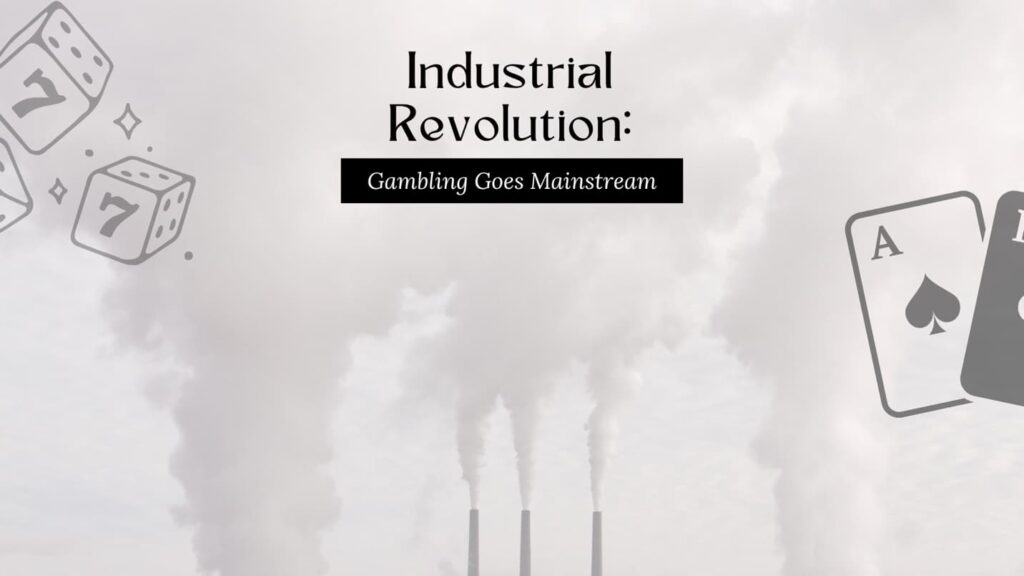
Urbanization and Working-Class Entertainment
The industrial cities generated unprecedented concentrations of workers in terms of wages and leisure. Factories and docks had feeding gambling houses. Horse racing became popular entertainment and not a preserve of aristocracy and betting halls were opened in the working classes.
It also created new dilemmas to the political elites. Is it their duty to shield laborers against exploitations or to observe personal freedom? There were economic reasons that made things difficult-gambling brought many taxes.
The critical events of this period were:
- Structured system of bookmaking in place of the unofficial bets.
- Normative odds and betting practices.
- Specially constructed racing tracks with seating thousands of people.
- Telegraph technology that allows off track betting networks.
The Regulatory Response
Britain was the first country to regulate gambling with licensing systems based on the balance between control and tolerance. The Gaming Act of 1845 tried to eliminate small betting salons but allowed large ones. This was a class-based strategy that was indicative of the social hierarchies of the Victorians.
Prohibitions caused the criminal organizations to be an opportunity. Illegal gambling thrived where the law prohibited the existence of gambling. The governments came to know that bans seldom led to better results compared to regulated markets.
20th Century Upheavals: Prohibition to Permissiveness
The Prohibition Era Paradox
The American moral crusades hit the high point in the early 20 th century. The progressive reformists attacked gambling as well as alcohol which they considered as a menace to the social order. Gambling ban laws were passed in state after state.
The findings were counterproductive. Illegal gambling syndicates organized crime syndicates derived their income through organized crime and used it to finance other criminal activities. Prohibition fattened criminals and deprived governments of tax collections.
Post-War Liberalization
Las Vegas was created by the legalization of gambling in 1931 in Nevada, which was a desperate measure to act during the Depression times. What started as economic need turned out to be a revolutionary policy change. Gambling became an object of doubt to an instrument of economic growth.
Surprisingly, the civil rights movement affected the access to gambling. The discriminatory casino policies were challenged in the court since wider equality movements were on the rise. Gaming establishments were forced to be integrated due to political pressure.
State lotteries became acceptable forms of gambling politically. They were justified by the governments as voluntary taxes to finance the education and infrastructure. At the end of the century, there was a majority of states in America that run lotteries although there was moral opposition on the issue in the past.
The post-war gambling landscape featured:
- The casinos in Las Vegas are turning into legitimate corporate businesses.
- Indian tribal gaming after sovereignty status.
- The casino legalization in Atlantic City breaking the monopoly of Nevada.
- Casinos using technicalities of the law on riverboats.
The Digital Revolution: Borderless Betting
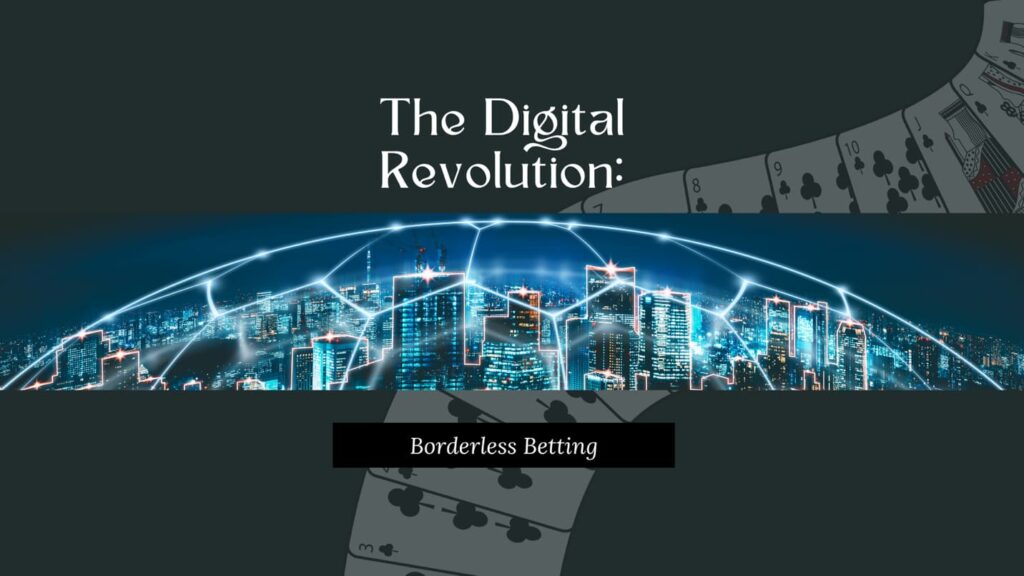
Internet Disrupts Everything
Internet broke the conventional gambling laws. The earliest online casinos came into the limelight in the mid-1990s, and they were based in offshore jurisdictions that were not under the control of the national jurisdiction. Suddenly anyone with internet access could gamble without leaving home, for example at Axiebet88 casino on axiebet88.biz and Axiebet 88 casino and other platforms emerging globally.
Political leaders were finding it difficult to react. Conventional geographical rules turned out to be useless as players joined servers located in Caribbean countries and logged in anywhere. The major belief that governments might regulate gambling within the boundaries failed.
Disruption was increased by mobile technology. Mobile phones turned any place to possible casino. The focus of political arguments on the topic of whether to legalize gambling changed to the question of how to control the unavoidable.
Modern Regulatory Battles
The modern gambling policy is controversial. The legalization of sports betting online is a struggle between the American states, and each jurisdiction develops the plans. There are those who accept gambling tax income and those who still observe moral taboos.
Bitcoin becomes an additional problem. Gambling based on blockchain is not subject to financial regulation, and it is difficult to regulate it. There is a discussion among politicians on whether the currently existing frameworks can be used to govern the decentralized technologies.
International coordination is still out of reach. A totally different course is taken by countries:
- The liberal British licensing policy.
- Far-reaching bans in China.
- Online betting is limited and legal in Australia.
- Patchwork of state-by-state in the United States.
Conclusion
Gambling has undergone several political revolutions that have made changes throughout centuries. Every revolution, whether it was of Rome or of the internet, changed the way society views risk and reward. The trend continues: the legal and social conditions of gambling are rebuilt inevitably with the change of politics.
We are sailing through another change now. AI, VR, and cryptocurrency will become another transformation in gambling. Political systems should be able to adjust to technologies that cross boundary and traditional controls.
The development of gambling discloses some more significant facts in the political values. The manner in which societies control gambling reflects some of the basic assumptions regarding freedom, security, righteousness, and finances. With the development of technologies, these old controversies are acting in new ways and it proves that the interaction of humanity with chance is always involved in force.
